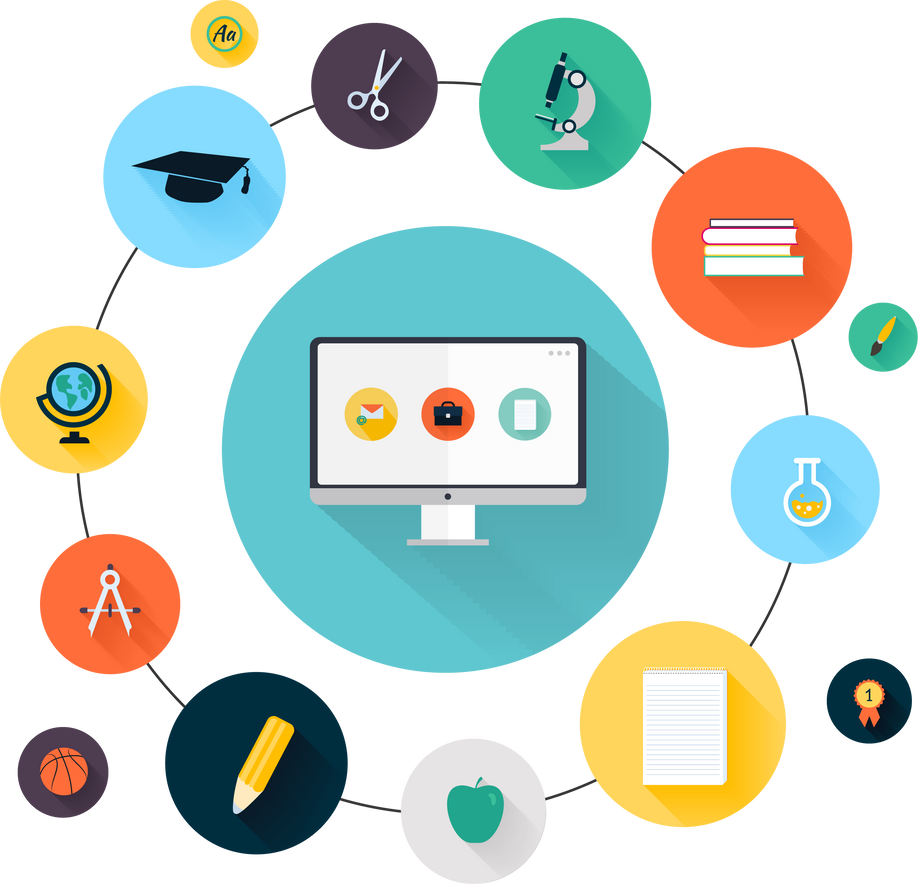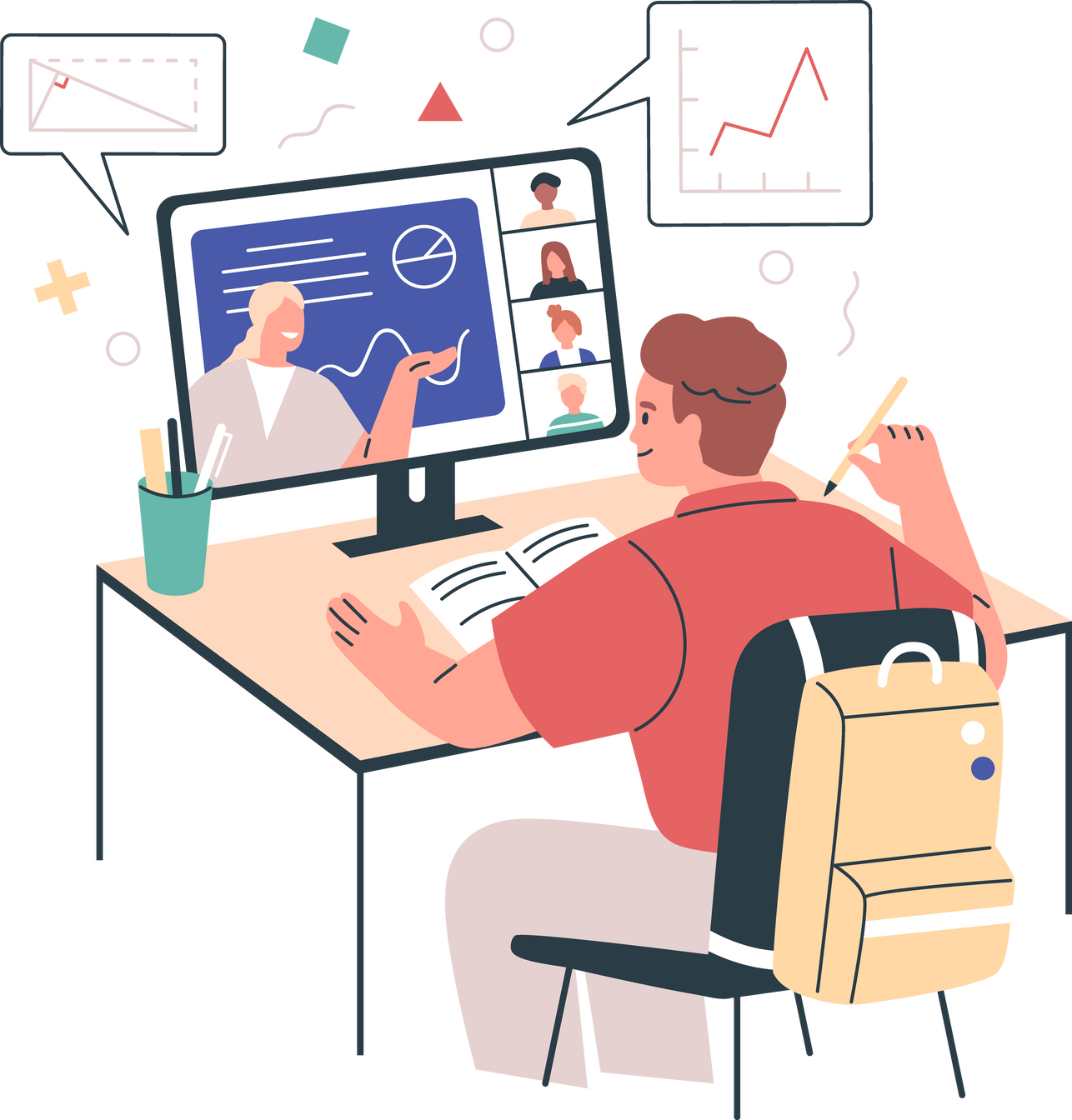Diversity in learning
ETEC 512 - Applications of Learning Theories to the Analysis of Instruction Settings
Introduction
In the world of education, the topic of diversity has evolved beyond the sole connection to race. It encompasses a broad spectrum of categories such as demographic, socio-economic, sexual identity, perspectives, and experiences (Mathews & Landorf, 2016). This demonstrates that learners possess unique backgrounds, abilities, and learning preferences that influence their educational journey.
As the digital world continues to intertwine within education, the rise of online learning has emphasized the importance of understanding and adapting to diverse learning needs. In response, Universal Design for Learning (UDL) has proven to be a useful framework by fostering inclusive and equitable educational experiences for the diversity of learners educators are experiencing (Bray et al., 2023). The exploration of this website will accentuate the aspects of diversity in learning with a focus on the integration of UDL principles in online learning.
Click to meet the diverse team behind the project
Meet our team!
Here are the diverse individuals behind this project!
Carrie Howells
Field: Online Learning
Subjects: all, but a mathie at heart
Hobbies: crafts, gardening, board games
Claire O'Donnell
Field: International Development
Subjects: Sociology, Politics and World Studies
Hobbies: Painting, singing, boxing!
Erica Houston
Field: Education
Subjects: Visual Communications
Hobbies: Golfing, hiking, drawing
Melissa Smith
Field: Education
Subjects: Math, Science, Computer Science
Hobbies: West coast swing, ultimate, curling
Click to learn how to interact with the website

Project Overview
Through the exploration of our three students, this interactive website will give you the opportunity to experience the diversity that exists within a group of learners. Focusing on more than only neurodivergent learners, the varying activities and stories will guide you through the different experiences diverse students may encounter throughout their education.
Our students
Click on a student to explore their story.
Hi, my name is Jasper. I am 18 years old and a first year university student.
I grew up in Okanagan, BC as part of the Okanagan Indian Band, otherwise known as Syilx peoples. My community is our own nation with Nsyilx language, culture and customs. I learned so much from my community growing up, which often involved a lot of storytelling and community engagement, which I consider important learning tools. This is the first time that I am living away from my family, but I can visit them often.
The principles of Universal Design Learning (UDL) can help meet my needs keeping in mind the importance of storytelling, community engagement and reconciliation & healing.
About Jasper
Take a moment to learn more about Jasper and his upbringing.
Storytelling
Listen to Jasper provide an OVERVIEW of why storytelling is important (0:29)
Combining stories and experience can be a powerful tool in creating inclusive experiential learning. David Kolb identified experiential learning in 1984 through four stages - concrete learning, reflective observation, abstract conceptualization, and active experimentation.
Check out an example of using storytelling techniques in this animated Prezi about David Kolb's Experiential Learning Stages.
Listen to Jasper provide an OVERVIEW of why collaborative learning through community is important (0:52)
Promoting collaboration and exploration are important aspects of enhancing community engagement online.
Check out the Flip board Psych 101 - Beta Group to explore a demo of weekly activities and check-ins for a small group.
(You will need to login to join the group)
Community Engagement
Reconciliation & Healing
Listen to Jasper provide an OVERVIEW of the importance of understanding reconciliation & healing (0:21)
We can begin to implement healing practices online by creating open dialogues with students and teachers and making space for reflection.
UBC classes have begun implementing the Indigenous Strategic Plan (ISP) by starting with the ISP Self-Assessment Tool [PDF] to understand if courses include indigenous perspectives.
Do you know much about Jasper's community?
Take the quiz to find out.
About Emily
Activity 1 of 5
Take a moment to learn more about Emily and her invisible challenges.
I’m 18 years old, in first year, and living away from my parents for the first time. I’m pursuing this degree as I hope to be a Social Worker one day helping children and youth and their families overcome challenges in their lives.
I’m worried about how difficult it will be to complete this degree because I have ADHD. Sometimes I find it hard to focus and be productive. I'm worried about keeping up with the online coursework. I'm scared to talk to my professors about it.
Activity 3 of 5
Supports and Accommodations
Following the principles of Universal Design for Learning (UDL) to create simple, flexible, and accessible online courses will support all students in the class including Emily.
It is important to note that those with ADHD struggle with executive functioning which is the ability to plan, focus, remember, and manage multiple tasks. Providing checklists and calendars will help Emily and her classmates keep track of what needs to be done and when.
Try this drag-and-drop activity to learn more about additional Accommodations to Support Neurodiverse Learners, where Emily describes what will help her be successful.

Activity 4 of 5
Make learning engaging!
Gamifying the learning experience by awarding badges for the completion of milestones provides a visual record of accomplishments and growth. It's also a great way for students to safely explore concepts from a different perspective.
As an example, consider the Prisoner's Dilemma, a scenario that psychologists, philosophers, and mathematicians alike use to explore how people make decisions to cooperate with others (or not) while weighing their individual and collective interests.
Try it for yourself -- will you cooperate or compete, and ultimately, will you survive the Prisoner's Dilemma?
Mastery and Reflection
One aspect of Bandura’s social cognitive theory is that self-efficacy is developed through personal experiences and encouraging role models. Using this approach, designing learning activities that build towards mastery will give Emily confidence in her abilities. Emily explains that “being able to observe experienced practitioners will give me insights to develop my own skills. Having opportunities to practice these newly acquired skills and receive feedback and encouragement will sustain my motivation.”
After watching a clinical psychologist conduct a mock counseling session with a client, Emily is prompted with a series of questions to ensure she has understood the key points and to encourage her to review and reflect on the learning experience.
Future assignments will consolidate her learning through role-playing activities and practicum experience.
As an educator, how will you incorporate mastery exercises and self-reflection opportunities for your students?
Take a few moments to record your reflections in your learning journal.
Activity 5 of 5
About Tyler
Take a moment to learn more about Tyler, his life experiences and his learning style.
I’m a first year nursing student. I am 44 years old and just returned to university after a long break from formal education. I’ve been working in the healthcare industry and my goal is to become a pediatric nurse because I love working with children.
I took some time off from formal schooling to raise my child who just turned 10 this year. My diverse needs in learning include being a mature student, a parent, and a member of the 2SLGBTQI+ community.

UDL & Adult Learners
There are many adult learning theories including Andragogy developed by Malcolm Knowles (Rebecca J. Hogue, 2019). Adult learning needs are very different from children’s needs.
One way to address these differences is with Universal Design for Learning (UDL). UDL is a “framework that guides the design of courses and learning environments to appeal to the largest number of learners” (University of Saskatchewan, n.d.). UDL uses research-based principles for teaching and learning for all learners, which also includes the needs of 2SLGBTQI+ learners (Kies, n.d.).
Diversity in UDL
Diversity in
Representation
- Accessible course materials
- Multimodal sources of information
- Variety of pedagogical approaches
- Student-created materials
- Comprehension and key concepts
- Check for understanding with formative assessment
Diversity in
Engagement
- Variety in teaching and learning activities
- Interaction with others
- Use of technology
- Student choice of course content
- Self-regulation and motivation
Diversity in
Expression
- Encourage students to demonstrate their learning through various forms
- Variety of assignments and demonstration of skills
- Variety of question types on exams
- Opportunities for interaction and feedback
- Give students options to demonstrate mastery
- Help students develop deliberate strategies for learning
(University of Saskatchewan, n.d.)
Learning Needs as a 2SLGBTQI+ Student
Specific needs for learners who identify with the 2SLGBTQI+ community have the right to inclusive:
- Laws & Policies
- Classrooms & Environments
- Health care & Counseling
Takeaways from each student.
Jasper
Teachers can implement First Nations Principles of Learning at a minimum when designing online courses to support principles of storytelling, community engagement and reconciliation and healing.
Experiential learning, Vygotsky’s educational theory and social presence through collaboration are all theories that can enhance indigenous perspectives.
Emily
Be aware that your class
is diverse in many different ways, some of which are invisible
or not shared with you.
Use a variety of instructional approaches to engage and support the diversity of your learners.
Apply Universal Design for Learning (UDL) principles that will benefit and provide flexibility to
all of your students.
Tyler
Adult learners have different learning needs than children.
Inclusive education using the UDL framework benefits all students, including 2SLGBTQI+ students.
2SLGBTQI+ students have the right to safe and inclusive policies & laws, classrooms & environments, and health care & counseling.
There are subtle changes educators can make that create a huge impact for inclusion for all learners, including queer students.
Conclusion
Throughout the exploration of the stories of the different students, it is evident that a group of learners possess diversity in their abilities and backgrounds. It is also noticeable, that technology and the principles of UDL become powerful tools for educators. Leveraging technology allows for the customization of learning by catering to the individual learner and accommodating diverse needs. The flexibility and accessibility of the principles of UDL ensure that no learner is left behind.
By removing the one-size-fits-all mentality, this differentiated instruction connects with the needs of the learners, and diversity is now able to thrive (Carolan & Guinn, 2007).
"The major reason for using online constructivist learning environments as a means of coping with student diversity is that the issue of diversity no longer becomes a problem to be solved but an opportunity to be exploited." (Holzl, 1999)
"diversity emphasizes learning with rather than just learning about others" (Mathews & Landorf, 2016)
Discussion
Questions
Reflect on your own experiences as a student or an educator. How might the application of UDL principles have positively impacted the learning process and outcomes in specific situations?
Based on your own definition of diversity in learning, which learning theories would be beneficial in an online learning scenario? What are the challenges and opportunities of using adaptive learning technologies in online courses?
Resources and References
Here is a list of the references used for each student and a few additional resources.